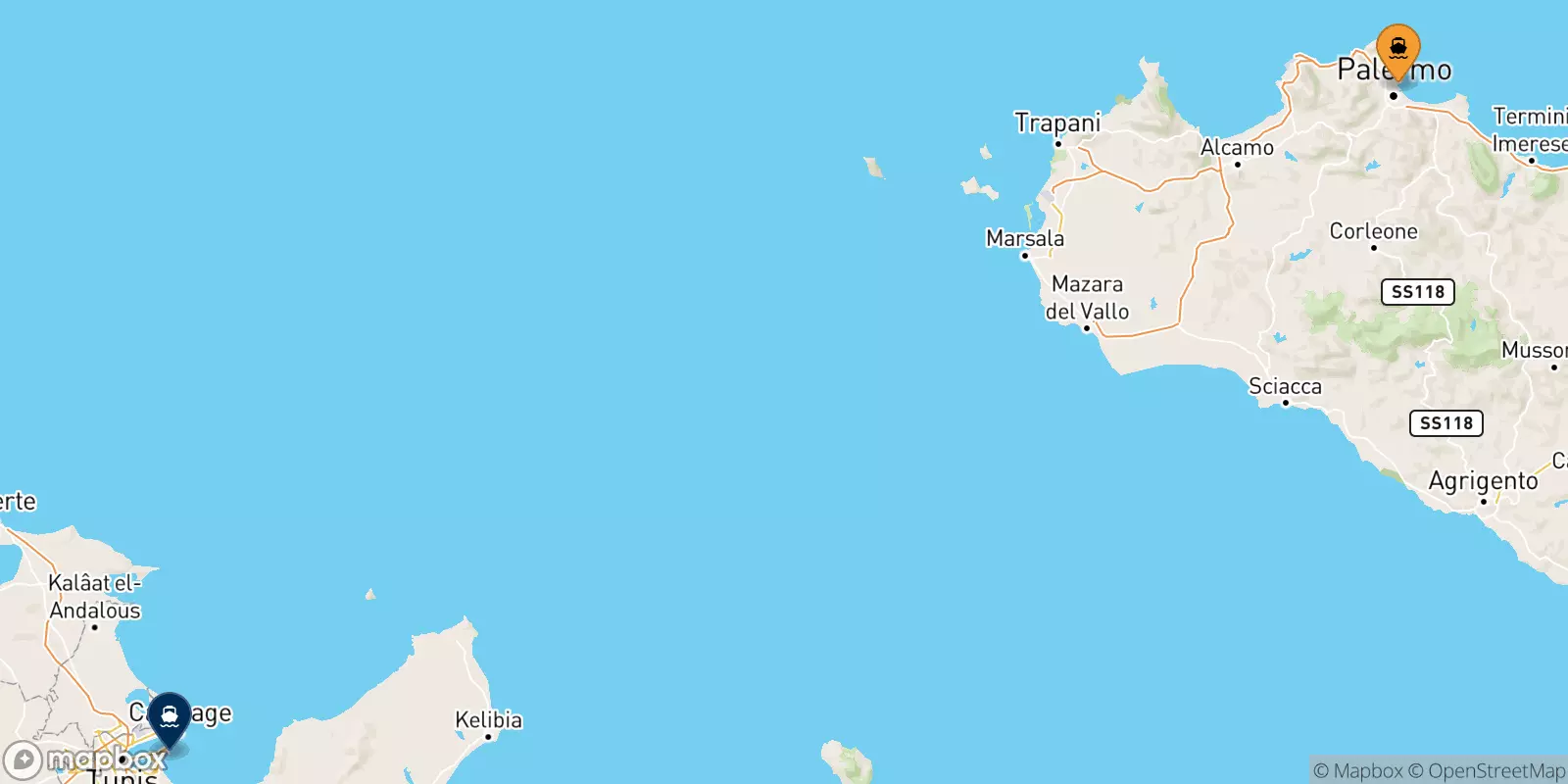Ferries from Palermo to Tunisia
Offers, Timetables and Prices


Are you planning a trip to Tunisia? Search the best ferry from Palermo to Tunisia with Tunisia ferry booking service by NetFerry. Our pages give you all of the information for your trip to Tunisia from Palermo including crossing prices, schedules and duration.
The ferry lines between Palermo and Tunisia are served by the sailing companies Grandi Navi Veloci and Grimaldi Lines offering 3 weekly sailings and travel times ranging from 10 hours to 12 hours (mostly morning boardings). Ferries on this route can transport both foot passengers and vehicles. In order to provide optimum passenger comfort, each ship is equipped with food shops, an information centre and accommodation suitable for all needs (according to availability).
Grab the opportunity and book your ticket now and NetFerry will guide you step by step!

The port of Palermo, in Sicily, is an important port that has undergone improvement and renovation in recent years. The port is part of the urban fabric of the city and offers many services to the passengers who transit here. The port has an interesting history and was built by the Phoenicians for trade and used by the Arabs and Romans. Today it serves routes throughout the Mediterranean and is equipped with catering services, tourist information offices, a parking area and luggage storage. The port is made up of three piers, Molo Santa Lucia, Molo Piave and Molo Vittorio Veneto, all connected... [More information]
Address: Via Francesco Crispi, 90133 Palermo, Italy
Directions: Google Map @ Palermo, port
Tunisia, in North Africa, is on the coast of the Mediterranean. It is believed that its name translates from Berber as "place to spend the night". History Tunisia has been inhabited since prehistoric times, there was evidence of human presence as far back as the Paleolithic period. Berber tribes were Tunisia's first known inhabitants. To quickly summarise millennia of Tunisian history, the period between the 12th and 14th century was pivotal and characterised by clashes between the sedentary Berbers and nomadic Arabs. The complex relationship between these two cultures continues today and has ... [More information]